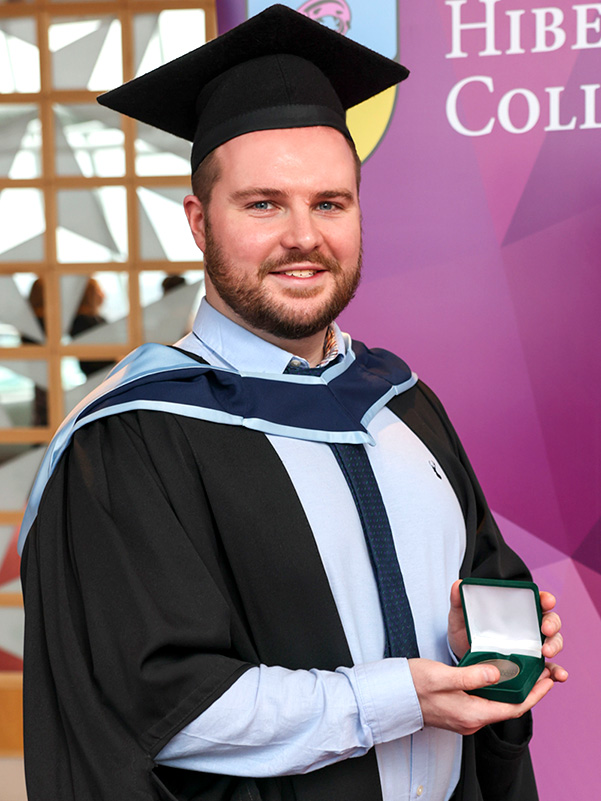
Alumni profile
David Byrne
Location
Carlow
School
Tyndall College Carlow
Education
BSc (Hons) in Pharmaceutical Science
Awards
Overall Student Prize
Research Prize
Why did you choose teaching and why Hibernia College?
Hibernia College offered the most flexible option for me to be able study for my qualification without having to relocate my life. I knew many people who had become teachers through the PMEPP provided by Hibernia College and they highly recommended it as a course provider.
What field of work or study were you in before you started your PME?
I worked in a number of roles within the pharmaceutical sector from 2017 to 2020. I also spent some time as studying and working as a coach prior to starting my PMEPP with Hibernia College.
Can you tell us a bit about your research project and why you focused on this area?
My research project for my PMEPP was titled ‘Inclusive Education and Pedagogy in Post-Primary STEM Classrooms’. From my educational background and experiences both in teaching and other areas of my previous careers, systems and how they are designed to cultivate the academic, professional and personal potential of individuals has fascinated me. Over the last number of decades, the pursuit of meaningful inclusivity across the breadth of society has increasingly prevalent. This is an ideal that forms a foundational pillar of modern education in Ireland, and across the European Union. My own research and experiences teaching within classrooms across a number of post-primary settings highlighted to me that there appears to be many recurring issues that remain barriers to improving the Irish education system to better accommodate for all learners. Effective critical thinking and problem solving are crucial skills we aim to impart to our students, so I wished to take a more critical approach to the existing literature around inclusive education, specifically within the field of STEM. My original aim was to investigate what inclusive methodologies STEM educators utilise in their pedagogy to accommodate for all learners, and if their general attitudes towards inclusive education. What I concluded from the findings of the project was that while attitudes were generally positive, the degree of the effectiveness of inclusive pedagogy was incredibly difficult to discern as no metric of adequate robustness could be applied to assess the impact of inclusive methodologies within STEM.
Now that you have graduated, what are your plans?
My plans after graduating from Hibernia College and starting my first full-time teaching position are to further upskill in Mathematics as an additional Leaving Certificate subject. This is both to better support my main subject of Chemistry and the needs of my school, but also to develop my own understanding of statistical analysis. My interest in the field of inclusive education is still forefront in my mind, and I plan to conduct future research into inclusive education and how we can develop more comprehensive systems to cultivate meaningful inclusion within education.
What piece of advice would you give to any person considering starting a PME?
Reflecting on my own journey through the PMEPP, the best advice I could offer to anyone considering to study with Hibernia College for their PME is to be organised, consistently work and have a vision as to what you wish to have achieved by the end of the course. I also cannot recommend enough to push yourself and try to secure teaching placement in different post-primary settings, particularly DEIS.